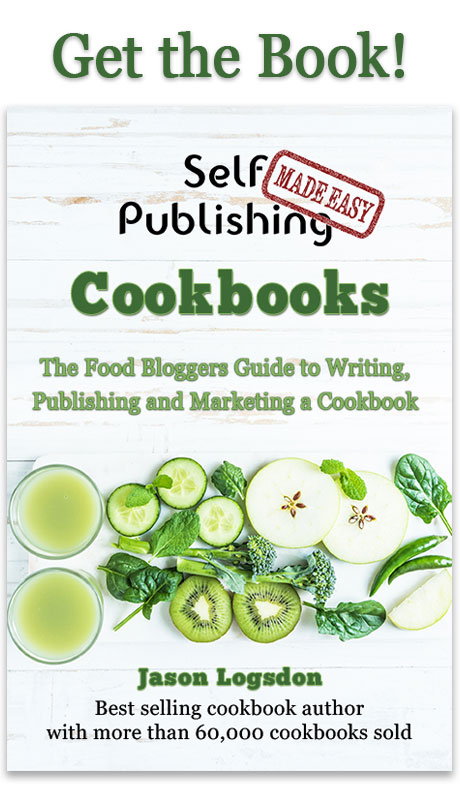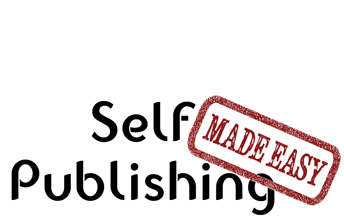Existing Users Sign In

Publishing Master Course Outline
- Self Publishing Master Course Introduction
- Before You Get Started
- Overview of the Publishing Process
- Determining Your Cookbook Goals
- Determine Type of Cookbook
- Consider a Sample Book
- Determine Book Subject
- What Makes a Good Cookbook Subject
- Brainstorming Cookbook Subjects
- Determine the Competition In a Cookbook Subject
- Finding Complementary and Competitive Products
- How to Generate a List of Keyword for Your Cookbook Subject
- Competitive Breakdown of an Amazon Sales Category
- Finally Choosing Your Cookbook Subject
- Research Cookbook Subject
- Choosing Your Avatars
- Researching the Cookbook Subject
- Researching Material for Your Cookbook
- Outlining and Notetaking Tools
- Write Cookbook and Recipes
- Keys to a Well Written Book
- Components to a Recipe
- Recipe Layouts
- Recipe Attribution
- Book Writing Tools
- How to Back Up Your Cookbook Files
- Photograph and Test Recipes
- How to Test Cookbook Recipes
- Food Photography Tips
- Proofread and Edit Cookbook
- Types of Cookbook Editing
- Tips for Self Editing Your Cookbook
- Finding Outside Editing Help
- Proofreading and Editing Resources
- Publishing Formats
- Types of Cookbook Publishing Formats
- Choosing a Self Publishing Printer
- Comparison of Print on Demand Cookbook Printers
- CreateSpace Cookbook Publishing Review
- IngramSpark Cookbook Publishing Review
- Ebook Publishers and Distributors
- Design Cookbook
- Cookbook Design and Formatting Guidelines
- Choosing A Great Cookbook Title
- How to Design a Cookbook Cover
- What Fonts to Use in Your Cookbook
- Cookbook Front Matter
- Cookbook Back Matter
- In-Book Marketing
- How to Design an eBook
- How to Create an ePub File
- Previewing and Testing eBooks
- Finding Outside Design Help
- Publish Cookbook
- How to Price Your Cookbook
- How to Write a Selling Book Description
- Determining Your Amazon Categories
- Choosing Publishing Keywords
- How to Publish on Amazon With CreateSpace
- How to Publish an eBook
- How to Publish On the Kindle
- How to Publish on the Nook
- How to Publish on iTunes
- How to Publish Your Book Through Smashwords
- How to Create and Sell a PDF on Your Blog
- Wholesaling Cookbook
- Methods of Cookbook Wholesaling
- Where to Wholesale Your Cookbook
- Developing a Wholesaling Line Sheet
- Promote Cookbook
- How to Launch Your Cookbook Successfully
- Getting Amazon Reviews
- Newsletter Promotions
- Free Content and Previews on Your Blog
- How to Get Blogs to Write About Your Cookbook
- General Articles
- All About ISBN Numbers
- How Do Cookbook Royalties Work?
- Financing Your Self Published Cookbook
- What is the Amazon Sales Rank?
- Cookbook Writing Resources
- Understanding Book Margins
- PDF Self Publishing FAQs
- How to Poll Your Blog Readers
- What is DRM
- Great Books to Learn About Food and Recipe Writing
- KDP Select - What Is It and Is It Worth it?
- Cookbook Design Programs
- Amazon Top Cookbook Reviewers
- Should You Publish Your ebook Directly or Use a Distributor
- Case Studies
- Sales Channel Revenue Breakdown with Modernist Cooking Made Easy
- Cookbook Writing and Marketing Templates
- Recipe Testing Worksheet Templates
- Review Requests Templates
- Cookbook Newsletter Promotion Templates
- Cookbook Manuscript Templates
Existing users please sign in to continue reading this article.
Welcome to Self Publishing Made Easy!
Publishing a Cookbook can be
Challenging
We will make the process clear and easy, allowing you to focus on creating a remarkable cookbook without any distractions.
Easily Navigate The Publishing Process
Benefit From a Community of Other Self Publishers
Maximize Your Distribution and Profit
We are the leading cookbook self publishing member site on the internet and are here to help you navigate the sometimes tricky path of self publishing. We provide step by step guidance to publishing your own cookbook as well as access to our active and helpful community of self publishers.
Or Get More Information about Self Publishing Made Easy
Disclosure : Some of the links in this post are affiliate links so if you click on the link and purchase the item, I will receive a commission.
Great Books to Learn About Food and Recipe Writing
Click here to get great self publishing content via emailWriting and Publishing Resources
Will Write for Food
The book  Will Write for Food
Will Write for Food by Dianne Jacob provides a great overview, tips and how-tos for food writing of all kinds including blogging, cookbooks, recipes, food critics, and even food-related fiction novels. The book is teeming with references to books, websites, and groups that cover general writing, recipe writing, and other food writing topics. For all types of writing, Jacobs strongly recommends starting with a "clear notion of your audience, your medium, and your medium's picture of their audience". As a successful journalist, editor-in-chief, freelance writer, teacher, and blogger, Dianne Jacob brings a wealth of practical hands-on information with a style that radiates genuine enthusiasm.
Recipe Writer's Handbook
The Recipe Writer's Handbook by experienced food editors Barbara Gibbs Ostmann and Jane L. Baker is a great resource on all aspects of recipe writing, including testing, formatting, nutrition and other general guidelines. These authors stress that measurements must add up, vocabulary must be clear, and the whole process must be broken down into simple steps with straightforward instructions and error-free presentation. However, you will also discover how to write concise and complete recipes without sacrificing your creativity or personality. You may find the final section interesting; it presents the philosophical views of food professionals as to what makes a good recipe good. The Handbook shows you how to "think" your way through a recipe in order to make important decisions and troubleshoot potential problems before they occur.
Food Information, Connections and Descriptions
The Flavor Bible
 The Flavor Bible
The Flavor Bible provides pairings of various foods. It's an invaluable resource for recipe creation and creativity by making connections between foods that you wouldn't have made on your own. Discover how to work more intuitively and effectively with ingredients; understand the relationship between temperature and texture; excite the senses with herbs, spices, and other seasonings. This book contains no recipes. However it does provide valuable alphabetical index of flavors and ingredients, and the means to search for complimentary combinations of them. The Flavor Bible by Karen Page and Andrew Dornenburg is Amazon's #1 seller in the "Herb, Spice & Condiment Cooking" category.
Food Lover's Companion
The Deluxe Food Lover's Companion written by Ron and Sharon Herbst contains more than 7,000 entries on types of food, cuisine, dishes, food-related culture and other gastronomic items. It's a good culinary dictionary for foodies; it gives you the quick answer for most questions in the kitchen. With Ron's background in hotel & restaurant management and Sharon's in journalism with awards as a cooking & dining author, they bring experienced information to the table.
Technical and Scientific Resources
On Food and Cooking: The Science and Lore of the Kitchen
 On Food and Cooking
On Food and Cooking by Harold McGee delves deeply into the science behind many of the food techniques, reactions, and reasons behind cooking. He pioneered the transformation of technical food science into cook-friendly kitchen science. In addition, he helped bring about the inventive culinary movement of molecular gastronomy. McGee has the authority to write with clarity and thoroughness as he blends the chemistry of food and cooking into the science of everyday life. Not only does this book provide useful information for anyone who has ambitions to develop their own recipes, but the book is simply interesting to amateur foodies and culinary professionals alike.
Keys to Good Cooking
Harold McGee's follow up book Keys to Good Cooking: A Guide to Making the Best of Foods and Recipes is a less scientific, but still a strong look into many aspects of cooking. From his standpoint, every great dish relies on proven science, and this compilation of well-researched data is a textbook for proper food preparation. It offers indispensable information on how to make the most of any recipe, a user's manual that enables home cooks to achieve maximum results.
Ratio
The book Ratio: The Simple Codes Behind the Craft of Everyday Cooking by Michael Ruhlman is an effort to break down many of the more complicated cooking techniques into simple ratios that can easily be applied to create a wide range of foods. He explains what essential properties make the ratios work and the subtle variations that differentiate, for example, bread dough from biscuit dough.
The Science of Good Cooking
 The team at Cooks Illustrated has spent the past 20 years investigating every facet and every detail associated with home cooking through tens of thousands of kitchen tests. In The Science of Good Cooking
The team at Cooks Illustrated has spent the past 20 years investigating every facet and every detail associated with home cooking through tens of thousands of kitchen tests. In The Science of Good Cooking, they condense the past two decades of test kitchen work into 50 basic cooking concepts, scientifically-minded approaches that every home cook should know.
How Baking Works
How Baking Works: Exploring the Fundamentals of Baking Science was written by Paula I. Figoni, a food scientist and associate professor at the International Baking and Pastry Institute in the College of Culinary Arts at Johnson & Wales University in Providence, Rhode Island. Figoni believes that the heart of baking is chemistry, and anyone who wants to master this skill must understand the principles and science that make baking work. This book explains the whys and hows of every chemical reaction, essential ingredient, and technique used in baking.
Cooking For Geeks
In his Cooking for Geeks: Real Science, Great Hacks, and Good Food book Jeff Potter, a self-proclaimed science and food geek, provides the tools for you to express your creativity instead of just following recipes. He aims to help you discover what makes a recipe work so you can improvise and craft your own unique dishes. This book is an excellent, humorous and informative resource for anyone who wants to experiment with cooking.
Modernist Cuisine
 In Modernist Cuisine: The Art and Science of Cooking
In Modernist Cuisine: The Art and Science of Cooking by Nathan Myhrvold, Chris Young, and Maxime Bilet, all scientists, inventors, and accomplished cooks in their own right. This five-volume, 2,400-page set reveals science-inspired techniques for preparing food. It is a landmark contribution to the art of cooking and our understanding of its underlying principles. Besides the large quantity of clear, concise information, the stunning photography of the equipment and ingredients, graphic design and even printing gives the book a "coffee table" type quality.


